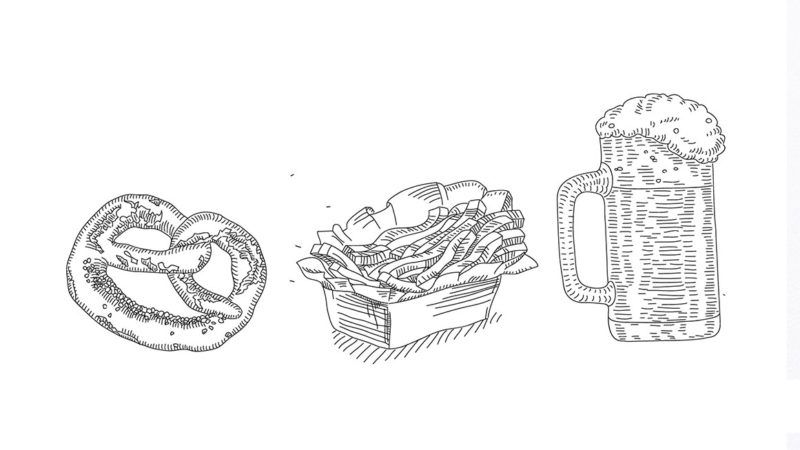A Plague of Pandemic Restrictions Builds Herd Immunity to Arbitrary Rules
Expect widespread cynicism toward official dictates to linger after the virus is history.

Perhaps the only thing worse than being subjected to seemingly arbitrary and intrusive rules imposed to fight a pandemic is when those same rules fail to accomplish their goals. Instead of effective infectious disease control, you get fatigue with commands issued by officials who seem to have no idea what they're doing, as we're seeing during the COVID-19 crisis. Given the resulting pushback against ineffective, nonsensical rules, expect widespread cynicism toward official dictates to linger after the virus is history.
Consider New York Gov. Andrew Cuomo, a Democrat who, early in the crisis, ordered his state's nursing homes—over their protests—to take in people who had tested positive for COVID-19. "In the weeks that followed the March 25 order," ProPublica reported, the disease "tore through New York state's nursing facilities, killing more than 6,000 people."
While that fatal error did not lead Cuomo to grapple publicly with his own poor judgment, it did diminish his credibility. He later decreed which drinking establishments were allowed to open based not on health criteria but on their sale of snacks. "Establishments must only serve alcohol to people who are also ordering food," he announced.
Perhaps doubtful about the antiviral powers of munchies, some bar owners complied by making menus featuring things like $1 "Cuomo chips" and penny lollipops. "More than just hors d'oeuvres, chicken wings, you had to have some substantive food," the visibly annoyed governor huffed in response. "The lowest level of substantive food were sandwiches." He was soon reduced to issuing repeated complaints about the multitude of bars engaged in "egregious violations of pandemic-related Executive Orders."
Not that New York was alone. In Texas, where forced business closures and stay-at-home orders hobbled social relations and economic activity without preventing a summer surge of COVID-19 cases, over 800 bars joined together to open in defiance of state rules.
"Recently we have spoken with business owners who tell us they don't intend to follow the orders," A. Bentley Nettles, executive director of the Texas Alcoholic Beverage Commission, said in a press release. Officialdom was not happy about being ignored, but bar owners lost patience with rules that proved more effective at killing bars than eliminating viruses.
The revolt among establishments serving alcoholic beverages is relatively easy to track, because they're closely monitored. But you see the same rule fatigue among barbershops, car washes, furniture stores, gyms, smoke shops, and even houses of worship. "After California Gov. Gavin Newsom shut down indoor religious services for the majority of the state, some churches chose to defy the order," The Sacramento Bee reported in late July.
Newsom had already blinked once on the issue, softening restrictions after hundreds of churches vowed to reopen at the end of May despite being deemed "nonessential" and thus subject to closure orders. "The current governmental orders are not narrowly tailored here because innumerable secular enterprises and places where people gather are deemed essential, including those that pose even greater risks of COVID-19 than religious assemblies," pastors protested in an open letter.
Inconsistency about whether mask wearing was virtuous or antisocial also bred defiance of mask requirements, turning the pieces of fabric into "a flash point in the virus culture wars," as The New York Times put it. Blame for the controversy can be laid, at least in part, on confusion sown by government officials themselves.
"Seriously people- STOP BUYING MASKS!" U.S. Surgeon General Dr. Jerome Adams tweeted on February 29, in an effort to maximize masks available to health care workers. "They are NOT effective in preventing general public from catching #Coronavirus."
By June, the Centers for Disease Control and Prevention had changed its messaging and was urging general use of masks. But that guidance was contradicted by the World Health Organization, which said that "the widespread use of masks everywhere is not supported by high-quality scientific evidence."
Even as calls for voluntary behavior were botched and muddled, mask mandates spread like wildfire, enforced by fines and even police stings in some jurisdictions. Inevitably, mask-wearing rules resulted in refusal and even violence by people bristling at conflicting claims and commands from supposedly responsible authorities.
Beyond the human cost of COVID-19, government credibility is a victim of this pandemic. It's unlikely to recover anytime soon, no matter how the health crisis itself is resolved.


Show Comments (89)